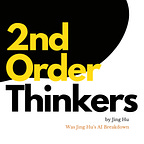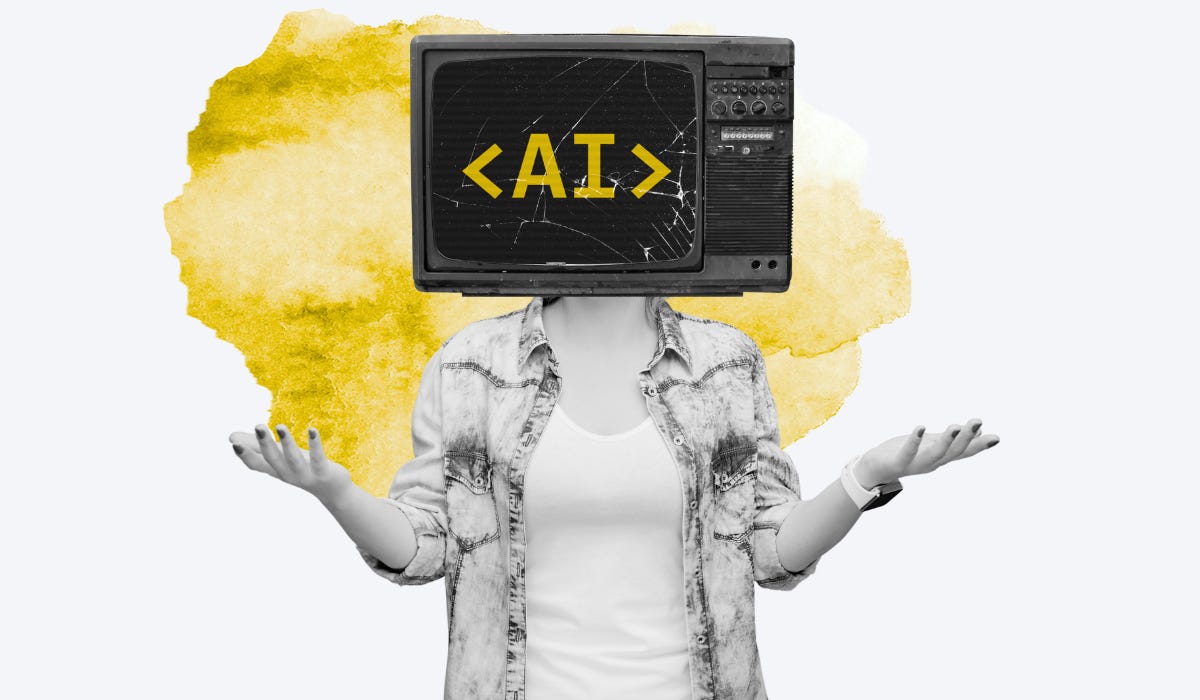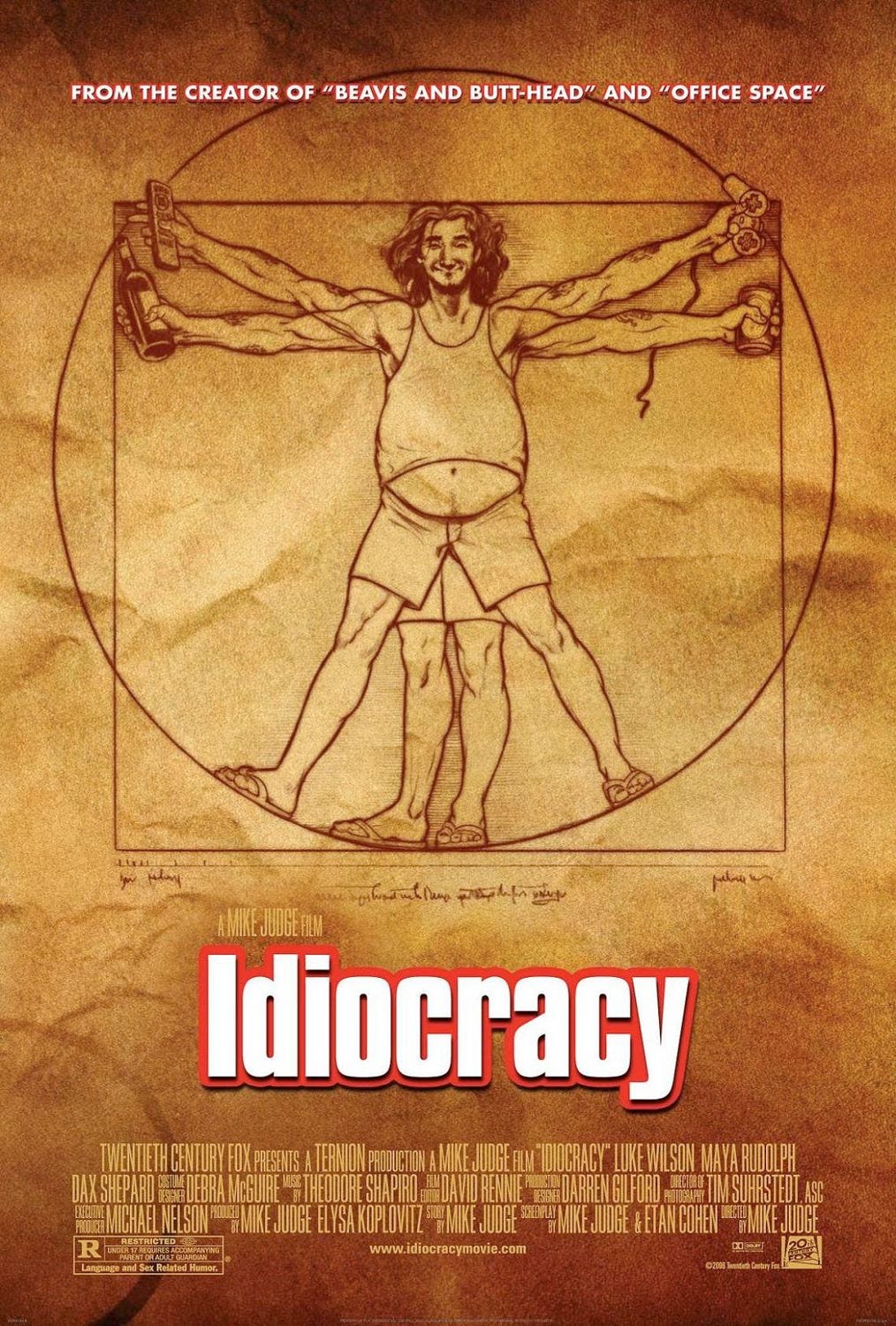In 2005, Mike Judge made a comedy about humanity getting progressively stupider. In Idiocracy, an average military librarian with an IQ of 100 named Joe Bauers gets frozen in a government experiment.
When he wakes up 500 years later, he’s the smartest person alive.
Not because he got smarter. Because everyone else forgot how to think.
This is a future where a president is a porn star and wrestling champion.
A Costco the size of a city that requires a tram system to navigate. Law degrees from Costco. Hospitals with automated diagnosis machines that only recognize the barcodes tattooed on patients - no barcode, you don’t exist.
The number one TV show is called “Ow! My Balls!”, thirty minutes of a man getting hit in the testicles. Nothing else. Just impact after impact. In the highest ratings, even someone who has their eyes glued to TikTok will be amazed.
The crops are dying because they’re watered with Brawndo, “The Thirst Mutilator” - a sports drink. Why? “It’s got electrolytes.” What are electrolytes? “It’s what plants crave.” But how do you know that? “Because Brawndo’s got electrolytes.”
The director thought this would take 500 years of differential breeding: smart people having fewer kids while idiots multiplied.
He was wrong about the mechanism; most of us were. It’s not genetics. It’s ChatGPT. And it won’t take 500 years.
It’d just take the next 10-20 years… for a not-even-smart AI to make us dumb.
TLDR: The Questions Nobody’s Asking (as always)
Q: If humans + AI barely outperform AI alone, what value are humans actually adding? None. Without intentionally focusing on structured thinking, we’re expensive biological middleware adding 10% value at 1000% the cost.
Q: Can you actually tell when you’re cognitively offloading? A: No. MIT professors couldn’t. They insisted they were thinking independently while anchoring every argument to ChatGPT’s output. If experts can’t detect their own offloading, what chance does everyone else have?
Q: What happens when the economy restructures around the assumption that humans won’t think? A: OpenAI is worth $157 billion. Microsoft embedded Copilot everywhere. Every workflow now assumes AI assistance. We’re building infrastructure for Idiocracy - try backing out now.
Q: Why hold conferences on cognitive fitness among people who already understand its importance? You are right, gym-goers worried about couch potatoes makes little sense. Unless we push the strategic legislation and policies to prevent the Idiocracy from becoming the reality.
Q: How fast are we actually becoming Idiocracy? A: The movie thought it would take 500 years of evolution. We did it in 3 years with a subscription service.
The Sharpest Question of All: Q: Are we trying to save people who don’t want to be saved? A: Yes. And which will be the majority… as history reveals. They’ll outvote us in just a matter of time, and ChatGPT’s ads are powerful during NFL prime time.
Shall we?













